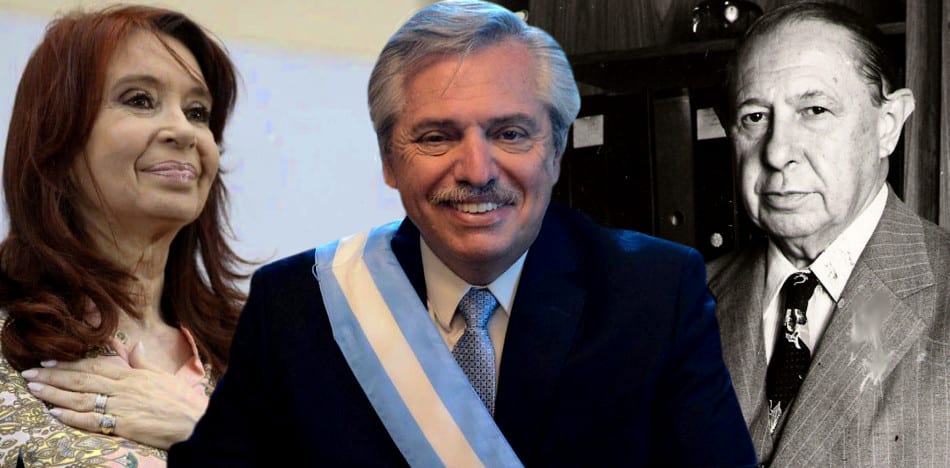
Spanish – Peronism came back and made it all in Argentina. It recovered the nation, the province of Buenos Aires; it included legislators and governors in the same space, and, for now, it enjoys unity within the framework of the Frente de Todos coalition. Of course, this can vanish at any moment, especially if we take into account the presence of Cristina Kirchner. But for now, the desire to maintain power seems to be more important than internal discussions.
On the opposition side, things are complicated. Mauricio Macri acceded to the presidency with a minority party, backed by a traditional force, which gave him support at the national level. Since Cambiemos returned to the plains, it is difficult to imagine the “former ruling coalition” as a unified entity. Macri is not very convinced of leading the opposition and in his party, the PRO. Critical voices are already asking for his replacement. The Radical Civic Union has an important sector that does not want to know anything about Macrism, and Elisa Carrio’s Civic Coalition was defeated: the founder of the CC said that she would step aside from big-league politics.
But although there is not much political coincidence between the spaces, there is absolute ideological agreement: they all express the same socio-democratic model, sometimes more “social” than “democratic.” The statist discourse is precisely the same as the one expressed until now by Alberto Fernandez. In other words, there are no conceptual differences between the ruling party and the opposition. To make matters worse, the extreme left is the only political faction outside this monochromatic political center. The far-left differentiates itself by radicalizing its discourse. In this way, discourse in Argentine politics ranges from the center-left to pure and hard Marxism.
In the last elections, the liberal economist Jose Luis Espert was the only one who presented a different discussion. However, the polarization between Kirchnerism and anti-Kirchnerism dominated the conversation. Many voters who expressed a desire to vote for Espert recognized that they would vote for Macri to curb populism. Although everything became apparent after the August primaries, many people voted for Macri. His vote share improved and grew overall, but was not enough to beat Alberto.
It would have been smarter to endorse the liberal candidate and get him 5% to 6% of the vote, but the trauma of Kirchnerism reduced Luis Espert’s vote share to 2%. An opportunity has opened up for the 2021 midterm elections.
The uniform discourse of the entire political mainstream lends itself to a different space with a secured microphone. The fact that the next elections are legislative and not for the executive also creates an opportunity.
The confirmation of the Argentine political map opens the door to a liberal or center-right option that will have a broad audience, very interested in listening. But for now, we have to forget about the presidential elections of 2023, set simple but concrete objectives, and try to get one legislative representative per district. But although there is still a year and a half to go before the parliamentary elections, we have to start now.
The same situation as in 1983, or worse…
It was 1983, and Argentina, in its first democratic election after the military rule, was debating between two candidates who said practically the same thing. Raul Alfonsin, the radical former president who finally won that year, and Italo Luder, the first candidate for Peronist head of state post-Peron, proposed solving the problems of statism with more statism. Alfonsin ended up handing over the presidency early amid hyperinflation, but if Luder had gone ahead (carrying out his economic campaign plan), the result would have been precisely the same.
Although 36 years have passed, the Argentine situation remains the same. In this video, Alvaro Alsogaray (1913-2005), complains to Mariano Grondona and Bernardo Neustadt because the candidates of radicalism and Peronism, who eventually did not even debate in public, proposed the same thing. “If you look at the Peronist platform, listen to the Peronist leaders and look at the radical platform and listen to the radical leaders… tell me, what are they going to disagree on?” asked the liberal economist.
On that occasion, Alsogaray presented himself as a candidate for the Congress and, at the same time, with a symbolic candidacy for President of the Nation. The journalists, who recognized the economist would win many votes for legislator, but who would not win at the national level, took an answer from the engineer that is worth remembering today: the real useful vote is not the vote for one or another force, in a competition where all exactly the same is necessary a future investment and consolidate a political force, beyond each electoral process.
That investment didn’t happen, and that is how each presidential election goes; People vote for the lesser evil. But the political landscape is so bleak that it is sometimes difficult to recognize which candidate is the worst of all. The midterm elections of 2021 appear as an ideal moment to position a truly different proposal.
 Versión Español
Versión Español













